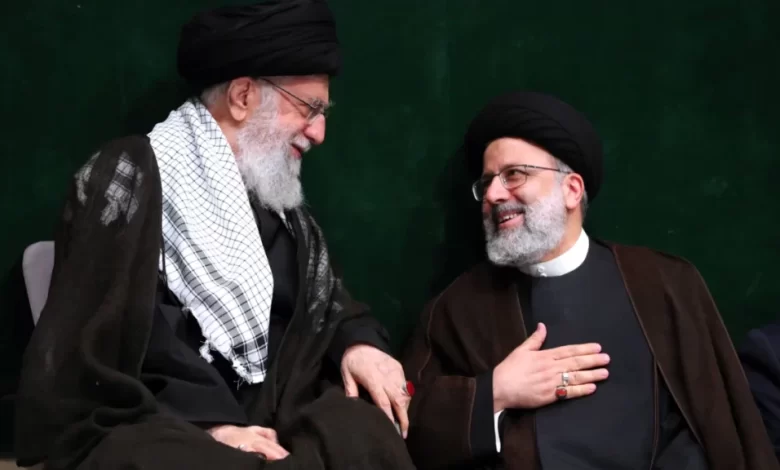Khamenei’s ‘Raisi Project’ Falters as Iranian Society Rises Up

iran-khamenei-raisi
Written by
Amir Taghati
In the inauguration of Ebrahim Raisi as the president of Iran’s regime, supreme leader Ali Khamenei, considered it “a glorious event” after a “meaningful election.” After almost two years in office, Raisi has failed to help Khamenei consolidate power in his moribund regime.
Since his ascendence to the presidency, Raisi proved on many occasions that his main objective is to oppress the restive society rather than resolve any social or economic crises. Testament to the fact is his ridiculous orders of “eradicating poverty in two weeks” and bogus claims of “economic prosperity” while his government has a huge budget deficit, the plunging value of Iran’s rial, the regime’s increasing international isolation, and people grappling with poverty.
The situation has reached a point where officials and state media mock Raisi, whose presidency Khamenei described as the “sweetest event in 2021.”
“The freefall of the national currency’s value during Raisi’s government has been unprecedented since the Qajar era. When Raisi took office, a dollar was equal to 230,000 rials. In less than two years, the dollar value is over 500,000 rials,” said Mohsen Hashemi, former president of Tehran’s city council, on Monday.
On Monday, Mehdi Nasiri, former editor-in-chief of Keyhan, aka Khamenei’s mouthpiece, urged the regime to voluntarily “take the chalice of poison and fully implement the Joint Comprehensive Plan of Action (JCPOA) before they are forced to do so.”
Ebrahim Raisi’s strategy for Iran’s prosperity
“Officials’ remarks in the first two weeks of the new [Persian] year of 1402 indicates that they do not intend to change their failed policies and approach,” the state-run Jomhuri-e Eslami daily wrote on April 3 in reaction to Raisi’s bogus claim of “eradicating absolute poverty overnight.”
The criticism is not limited to Raisi’s economic and foreign policy failures. Some officials go beyond urging Khamenei to take the chalice of poison and warn him about the people’s uprising.
“Don’t try to intimidate the people; there will be consequences. The same people who give power to a system can topple it,” said Mohammad-Reza Aref, a member of the regime’s Expediency Council, on Monday.
“This situation continues as long as officials refuse to hear people and continue their wrong policies. There is a fire under ashes in the society, and we should expect more serious challenges in new and larger dimensions,” said Javad Emam, a former state official, on March 27, according to the state-run Khabaronline website.
“The early defeat of Raisi’s government and its management shows the system has reached the end of its period of declining efficiency. The timing of the final collapse of the structure occurs depends on many events. But we know that the blade of the scissors is closing on the government from the inside and outside, and one incident is enough to bring the two blades of this scissor together,” Mohsen Ranani, a state-affiliated economist, wrote in an open letter on February 16.
What happened to Ebrahim Raisi’s promises in his first year?
Following two nationwide uprisings which rattled the regime’s foundation, Khamenei decided to consolidate power to confront future waves of dissent. So, he purged the rival faction’s candidates and pulled Raisi out of the ballot box in a sham election that was boycotted by the majority of Iranians. Khamenei bet on Raisi despite the latter’s notoriety as an unscrupulous mass murderer.
The supreme leader’s primary objective was controlling Iran’s restive society. But the nationwide uprising which erupted last September and the presence of an organized opposition that keeps the flame of dissent alit disrupted Khamenei’s plan. The continuation of protests, which points to their organized nature, delivered the final blow to Khamenei’s “Raisi project.” This fact has become more evident in recent days as Raisi had to fire the Ministers of Labor and Education and replace the head of the Budget and Planning organization.
Now as the uprising has laid bare the regime’s vulnerability and cracks in the so-called “consolidated system”, the world community should increase pressure on the regime and side with the Iranian people by recognizing their demand for regime change and the right to self-determination.

